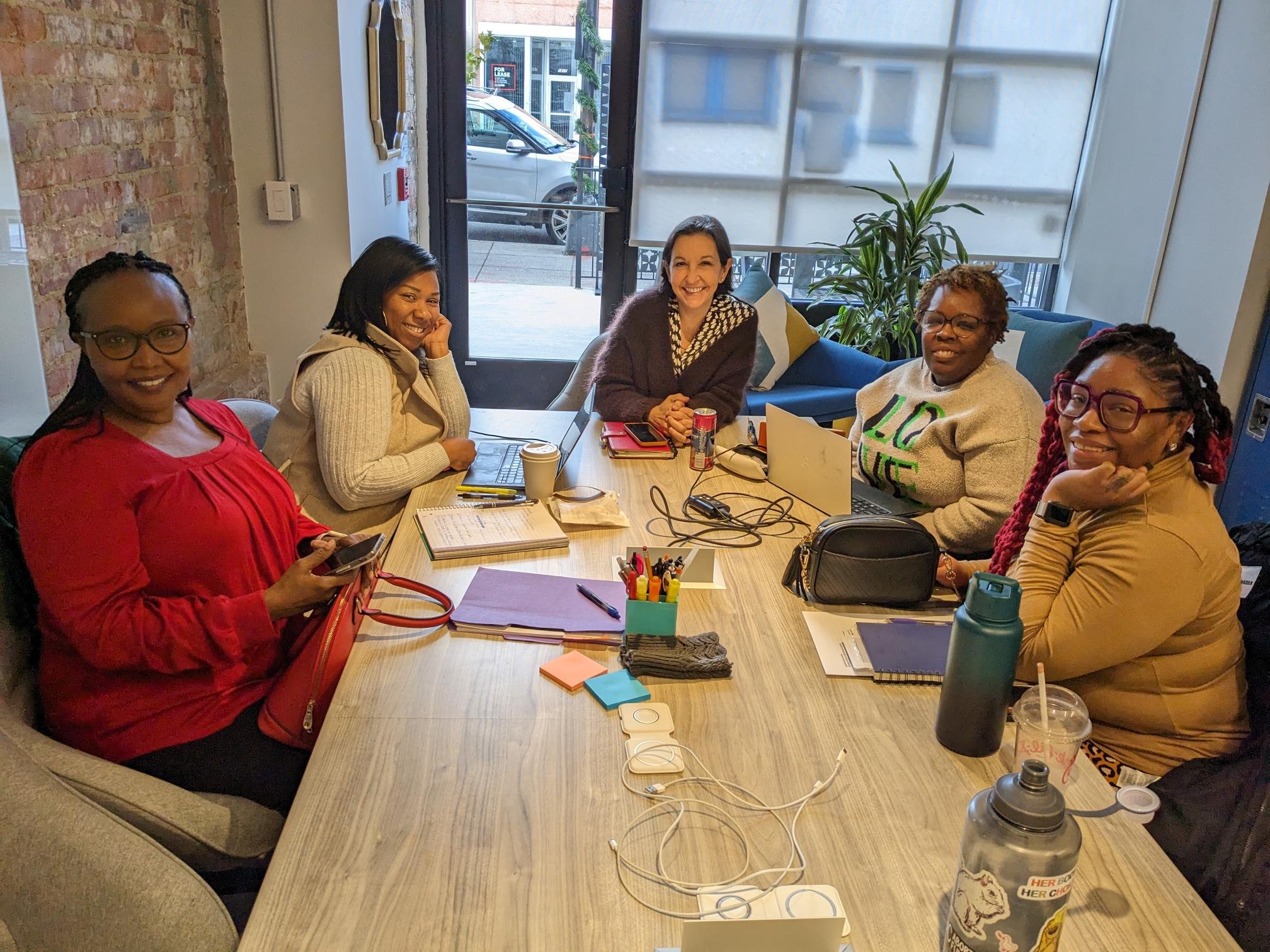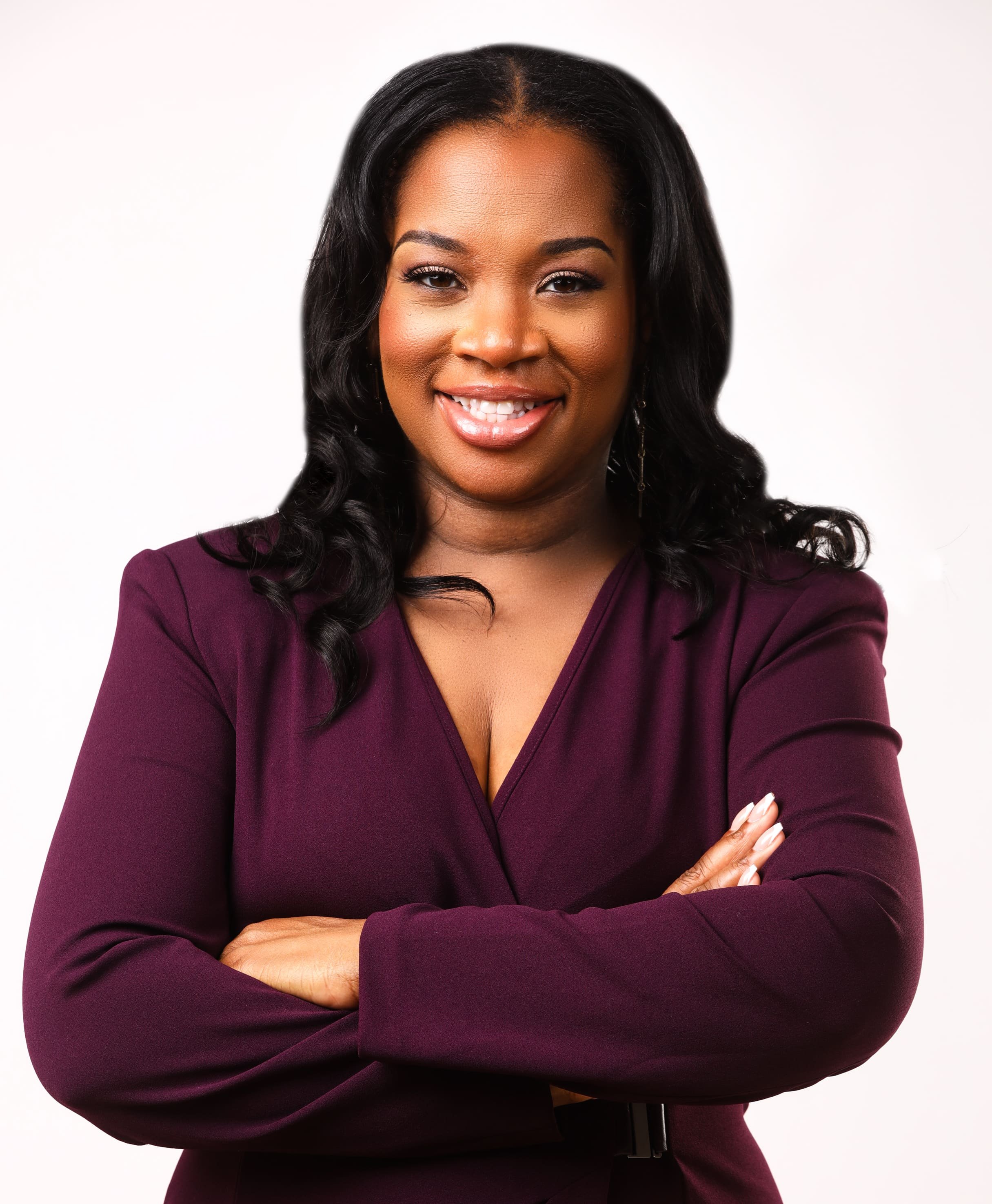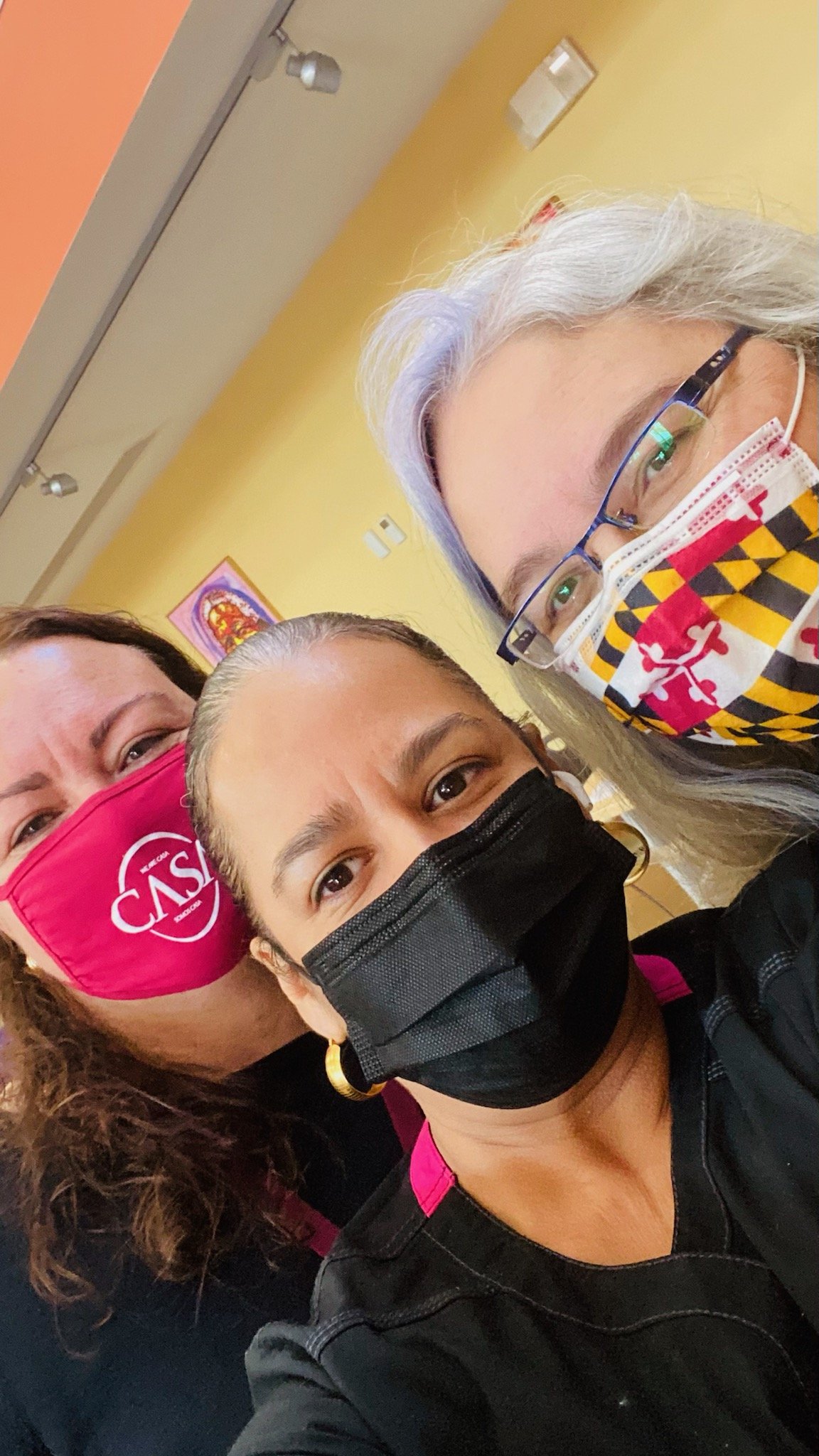In 2024, The Community Foundation is highlighting 'Leaders of the Future' - individuals and organizations who inspire us to look towards a brighter future for Greater Washington.
This month, in honor of International Women’s Day, we are highlighting incredible female leaders in our community that understand, advocate for, and inspire inclusion by promoting a sense of belonging, relevance, and empowerment.
Our theme for March, ‘Inspire Inclusion’, coincides with the Annual theme of International Women’s Day 2024 and reflects The Community Foundation’s aspirations, as outlined in our most recent 2023 Annual Meeting.
-
1) What is your relationship to The Community Foundation?
Yachad is a nonprofit partner with The Community Foudation’s Health Equity Fund
2) “When we inspire others to understand and value inclusion, we forge a better world” – How does inspiring inclusion impact your community and the work that you do? Please include 1-2 brief examples of how you or your organization promote and inspire inclusion.
Having a place to call home is the foundation for a good life and, for that matter, a better world. Inclusive communities are places that have achieved economic and racial equity. Owning a decent and safe home helps to ensure long-term well-being and financial security. Yachad’s home remediation work guarantees that lower-income Black and Brown homeowners, many of them female-headed households, have the ability to remain in their homes and their neighborhoods for years to come. We work to see that these families are not displaced as a result of gentrification but can benefit from new investments into their communities. After all, they deserve the same opportunity to strengthen their own and their families’ financial footing that so many other Americans enjoy.
3) What does it mean to you to be a female leader? Why do you feel it’s important to understand, advocate for, and inspire inclusion – especially for future female leaders?
As the Executive Director of Yachad, I engage in our work through my lived experience of a working mother with three children who understands the need for a functional home. I understand that if the roof leaks, the toilets don’t flush and I can’t make dinner for my family, I also can’t do my work that helps to pay the bills. We need more female leaders who understand the many roles we must play. That means it is important to include women with varied life experiences to share their concerns and their life stories so they can advocate for truly inclusive policies and ways to be in the world.
4) In your opinion, what are the best ways to promote a sense of belonging, relevance, and empowerment?
As the “Golden Rule” states, if we truly (with my emphasis added) treat others in a manner that we want to be treated, then we are beginning to empower and create a sense of belonging for others. For example, everyone deserves a decent place to live – let’s start with that. If we equitably provide opportunities for everyone to live in good housing in welcoming communities, we provide a sense of relevance and belonging. With that sense of belonging, people feel empowered to take on greater challenges – to make the world a better place.
5) When you imagine ‘a better world’ inspired by inclusion, what does that look like?
A better world looks like some of Yachad’s homeowners who are proud of their homes, who are friendly with their neighbors and looking forward to inviting friends and family over for Sunday dinners. And who have a home that can nurture their own personal growth and that of their children.
-
1) What is your relationship to The Community Foundation?
My Sister’s Place is a nonprofit partner through The Community Foundation’s Health Equity Fund.
2) “When we inspire others to understand and value inclusion, we forge a better world” – How does inspiring inclusion impact your community and the work that you do? Please include 1-2 brief examples of how you or your organization promote and inspire inclusion.
We deliver services in a manner that recognizes the structural barriers discourage full inclusion in our community. Our Cash Transfer program and our transitional housing programs allow the clients we serve to have a stable foundation from where they can better address other needs that can lead them to self-sufficiency and full inclusion in our community.
3) What does it mean to you to be a female leader? Why do you feel it’s important to understand, advocate for, and inspire inclusion – especially for future female leaders?
There are barriers and advantages to being a female leader. While female leaders need to work harder to be heard, we also are often nurturers and empathetic and have characteristics that allow us to excel in advocating and inspire inclusion. Inclusion often equates with success, financial and otherwise.
4) In your opinion, what are the best ways to promote a sense of belonging, relevance, and empowerment?
The best way to promote belonging, relevance and empowerment is to see others who look like us in the place we want to belong, in places of empowerment and relevance.
5) When you imagine ‘a better world’ inspired by inclusion, what does that look like?
Inclusion would mean better representation of a diverse population in all areas, particularly in places of power and wealth.
-
1) What is your relationship to The Community Foundation?
The Community Foundation has been a wonderful partner to Crittenton Services of Greater Washington, and has funded some of our programs.
2) ”When we inspire others to understand and value inclusion, we forge a better world” – How does inspiring inclusion impact your community and the work that you do? Please include 1-2 brief examples of how you or your organization promote and inspire inclusion.
So often, we think “inclusion” means that everyone has a voice. But that’s not enough. We need to not only have a seat at the table while decisions are made, but we also need to hear from one another.
Years ago, we asked our Crittenton girls what they wanted from their community. The overwhelming answer was that they wanted to be heard. In response, we established our annual Talk With a Teen Girl High Tea to connect girls with community leaders so they could share their stories, concerns, and hopes with others. Over the years our girls have talked about a range of issues, including the problem with being judged by their appearance, the importance of supporting other girls, the need to address mental health challenges, and their frustration when they see the inequitable distribution of resources in our region. At the Tea, our girls literally have a seat at the table and have the opportunity to be heard.
Another way to foster inclusion is to tear down the real and imagined barriers that separate us. My mission in life through my work with girls and women is to ensure that we leave the door open for generations to follow which we've obtained via mentoring, shadowing, and a host of other ways.
3) What does it mean to you to be a female leader? Why do you feel it’s important to understand, advocate for, and inspire inclusion – especially for future female leaders?
Being a female leader means that we have the ability and responsibility to set the standard for other aspiring women, while encouraging them to reach their full potential. Rising to the ranks of CEO is no small feat. I found that my journey led to many pathways that I didn’t need to take, yet made me stronger, nonetheless. As a leader, it is my responsibility to share my experiences to help others along the way, and to be an example of a woman of integrity who advocates fiercely for others.
4) In your opinion, what are the best ways to promote a sense of belonging, relevance, and empowerment?
The best way to promote a sense of belonging, relevance, and empowerment is to celebrate the different things that communities bring to the table. We all have different perspectives, and talents. We all have something to give, and it’s up to leaders to show that we value everyone’s contribution.
5) When you imagine ‘a better world’ inspired by inclusion, what does that look like?
As a mother, and an advocate for women and girls, a better world is a world with less worry. Of course, we’ll always worry! But in an ideal world, all mothers—all parents—will worry about the everyday challenges that every child faces as they grow into the young men and women they’re meant to be. Martin Luther King, Jr. had a dream that “…the whirlwinds of revolt will continue to shake the foundations of our nation until the bright day of justice emerges.” Inclusion is absolutely necessary to keep that dream alive.
-
1) What is your relationship to The Community Foundation?
I serve on the Executive Board of the Prince George’s County Emerging Leaders Impact Fund (ELIF)
2) “When we inspire others to understand and value inclusion, we forge a better world” – How does inspiring inclusion impact your community and the work that you do? Please include 1-2 brief examples of how you or your organization promote and inspire inclusion.
The very nature of the work that we do at the Marlboro Pike Partnership requires intentional coordination and inclusivity in order to achieve what we believe to be success. Our mission and strategic plan to revitalize the Marlboro Pike corridor requires vision that rooted in data but inspired by community. We are a collective of leaders committed to service at the grassroots level by empowering the community through education, outreach and engagement while simultaneously working with government agencies and private organizations to truly bring about change to the Marlboro Pike corridor. We view success as revitalization with community flavor and buy-in.
3) What does it mean to you to be a female leader? Why do you feel it’s important to understand, advocate for, and inspire inclusion – especially for future female leaders?
Through my experience, I’ve learned about many women pioneers throughout our history (some of which I’ve had the pleasure to work with), who often not only break through glass ceilings, but set a standard. As a minority woman in public service, we are often the backbone to a finished product left unseen.
However, in the current international and political climate, the human race cannot afford to let women continue to blend into the background as hidden figures. Women have been and will continue to be not only innovators, entrepreneurs, scientists, doctors, lawmakers, negotiators and executives, but we are also mothers, sisters, daughters and mentors.
To future female leaders, I offer two of my favorite quotes. The first is from Bessie Coleman, “Tell them that as soon as I can walk, I’m going to fly.” The second is an old Latin proverb, “They tried to bury us. They didn’t know we were seeds.”
4) In your opinion, what are the best ways to promote a sense of belonging, relevance, and empowerment?
Creating a space where respectful and open interactions can occur with consideration to small yet meaningful details to reduce barriers and increase understanding without judgement or misinformation.
5) When you imagine ‘a better world’ inspired by inclusion, what does that look like?
Every person having consideration for their neighbor and as a result strengthening the interconnectedness and overall safety of “the village”
-
1) What is your relationship to The Community Foundation?
Care for Your Health, Inc is a nonprofit partner with The Community Foundation through the Sharing Montgomery Initiative.
2) “When we inspire others to understand and value inclusion, we forge a better world” – How does inspiring inclusion impact your community and the work that you do? Please include 1-2 brief examples of how you or your organization promote and inspire inclusion.
Inspiring others to understand and value inclusion is indeed a powerful catalyst for positive change in the world. When we recognize and respect the diversity of backgrounds, perspectives, and experiences that each person brings to the table. When people feel included, they are more likely to contribute their unique talents and perspectives, leading to more effective problem-solving and decision-making processes. We have designed Care for Your Health, inc to allow its staff to thrive and bring the best they have to offer forward. Ultimately, by inspiring others to embrace inclusion, we not only create a more equitable and just society but also pave the way for a better world where diversity is celebrated and everyone has the opportunity to thrive.
3) What does it mean to you to be a female leader? Why do you feel it’s important to understand, advocate for, and inspire inclusion – especially for future female leaders?
Being a female leader allows me to leverage my strengths, experiences, and perspectives to inspire and drive positive change within organizations and communities, through my work at Care for Your Health. However, my role as a female leader goes beyond the impact my organization had in the community but it is also a source of inspiration to the women that see themselves reflected in my work.
My role as a female leader provides a role model for aspiring leaders, particularly for other women and girls and brings a diverse perspective, viewpoints, experiences, and approaches to the leadership role. It also promotes a more fair and equitable world where people can lead if they have the talent to do so, regardless of gender. I hope that my striving for excellence also addresses stereotype regarding female leaders that will ultimately bring down systemic barriers and promote a more just and equitable society for all. Overall, my I envision my role as a female leader beyond the mere gender representation, but as a tool to harness the full potential of talent and diversity to create stronger, more resilient organizations and communities.
4) In your opinion, what are the best ways to promote a sense of belonging, relevance, and empowerment?
Fostering belonging, relevance and empowerment is not a one time project but a way to understand, organizations, the community and the world as a whole. This requires building an environment where people's voices are heard and people are encouraged to express themselves, where people are provided opportunities to engage and thrive, where each individual contribution is acknowledged and appreciated, where everyone can grow and develop their full potential and ultimately where people are happy.
5) When you imagine ‘a better world’ inspired by inclusion, what does that look like?
A better world is a world where everyone has access to their human rights. This is a world where everyone can enjoy their inherent rights, regardless of race, sex, nationality, ethnicity, language, religion, or any other status. This is a world where everyone has the right to life and liberty, freedom from slavery and torture, freedom of opinion and expression, the right to work and education, the right to health, food and a roof over their head and their right to self-determination. We have plenty to do to get there, but this vision of a better world inspires me to get up every morning and put my best foot forward





